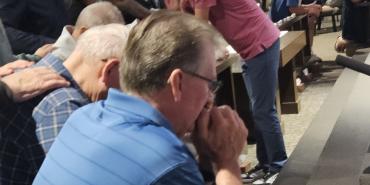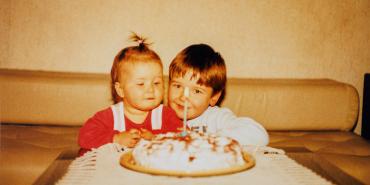WWJD Now?

"WWJD: What would Jesus do?"
While it has lost some of its original punch, WWJD still shows up occasionally. Although the wristband craze has waned, the question itself is still as intriguing as ever. What would Jesus do now?
Depending on the circumstances, folks have pretty much answered it according to their own political ideologies, religious traditions, or social biases. It can be, I think, that kind of question.
But there is value in the question. What would Jesus do now? What would Jesus do about the lost and broken people in our world—the pre-Christians, as some prefer to call them? What would Jesus do about the suffering and injustices of our own cultures? How would Jesus respond to current hot issues like immigration or poverty or same-sex marriages? What would He do about permissive and corrupt lifestyles?
No one can say with accuracy exactly what Jesus would do about these unsettling questions of life, but because of Easter, we can say with certainty what He has done.
Jesus came! We call it the Incarnation—God with us. He is among us: "The Word became flesh and lived for a while among us" (John 1:14). As some translations and paraphrases put it: "He moved into our neighborhood — He pitched His tent among us!"
Jesus got involved! As we read the Bible we find Jesus in the marketplace, in places of worship, among the poor, spending time with the marginalized, and challenging the religiously comfortable. Jesus became involved in the world to which He came. He was not a tourist just passing through or simply looking things over. Jesus rolled up His sleeves and got involved.
Jesus cared! He went out of His way to find hurting people. Political correctness was not His greatest concern. He crossed racial and cultural barriers to reach out to the Samaritan woman at Jacob's well. He stopped to heal a woman who quietly touched the hem of His robe and restored her in the community. He wept at the grave of His good friend Lazarus. In fact, He cared so much about all the suffering in this world that He died on a cross, fulfilling the words of Isaiah:
Surely he took up our infirmities and carried our sorrows (Isaiah 53:4a).
But he was pierced for our transgressions, he was crushed for our iniquities (53:5b).
Jesus changed everything! He came "To preach good news to the poor" and "To proclaim freedom for the prisoners and recovery of sight for the blind, to release the oppressed, to proclaim the year of the Lord's favor" (Luke 4:18-19). He did all of that and more.
Jesus changed everything because He lives! The suffering of this world could not overcome Him. The injustices of this world were no match for Him. The sin of this world could not overwhelm Him. "Where sin increased, grace increased all the more" (Romans 5:20b). Death could not hold Him.
Jesus Christ walked right into the sin and suffering of this world and took it all on Himself. He carried it all to the Cross and suffered there for everyone. He died on that Cross. They buried Him. Three days later Christ rose from the dead. He lives!
If you are asking the question, "What would Jesus do?" this is a good place to start. I call this incarnational, transformational living. Jesus now lives in His people to continue doing what He did when He walked the dusty roads of ancient Israel.
Jesus now walks the streets of our cities in us. He still comes close to a hurting world through us. He still weeps through us. He goes out of His way to find hurting people through us. He still changes everything because He lives.
This is the meaning of Easter: Jesus is alive! He is at the right hand of the Father. Through the Holy Spirit, He lives in His people—His Church—and continues to do now what He has always done.
J. K. Warrick
Holiness Today, March/April 2011
Please note: This article was originally published in 2011. All facts, figures, and titles were accurate to the best of our knowledge at that time but may have since changed.




